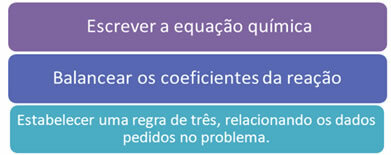Intermolecular forces are those responsible for keeping molecules together in the formation of different compounds, these forces influence the physical state and temperature of substances, see like:
1. The boiling temperature (T.E.) of a substance is influenced by the intermolecular interaction that occurs between its molecules: the more intense this force, the greater the T.E. 
Ascending order of interaction intensity →
2. The interactions exerted between molecules also obey the physical state of the substances.
We can find compounds in different physical states: solid, liquid and gas. But do you know why they introduce themselves like that? Everything depends on the interaction between the molecules, that is, in each physical state they organize themselves in a certain way. It is also known that a substance can change its physical state, which is where the question arises: how do intermolecular forces influence this process?
Disorganization of molecules occurs in the passage of substance from one physical state to another, for example, solid to liquid (fusion), or from liquid to gas (vaporization). During this process the intermolecular forces are broken due to the distance of the molecules.
In summary: The less intense the intermolecular forces, the more volatile the substance and the lower its boiling temperature (T.E.).
In general, a compound is considered volatile because of its weak intermolecular interactions, in which case the molecules move apart, taking the liquid to a gaseous state.
Do not stop now... There's more after the advertising ;)
By Líria Alves
Graduated in Chemistry
Brazil School Team
See more:
Types of intermolecular forces
Learn about dipole-induced, dipole-dipole and hydrogen bonding forces.
Intermolecular forces and solubility
Experiment that allows testing which substance is polar and non-polar.
General chemistry - Chemistry - Brazil School
Would you like to reference this text in a school or academic work? Look:
SOUZA, Líria Alves de. "Does intermolecular force influence the temperature and physical state of the molecule?"; Brazil School. Available in: https://brasilescola.uol.com.br/quimica/forca-intermolecular-influi-na-temperatura-estado-.htm. Accessed on June 27, 2021.



